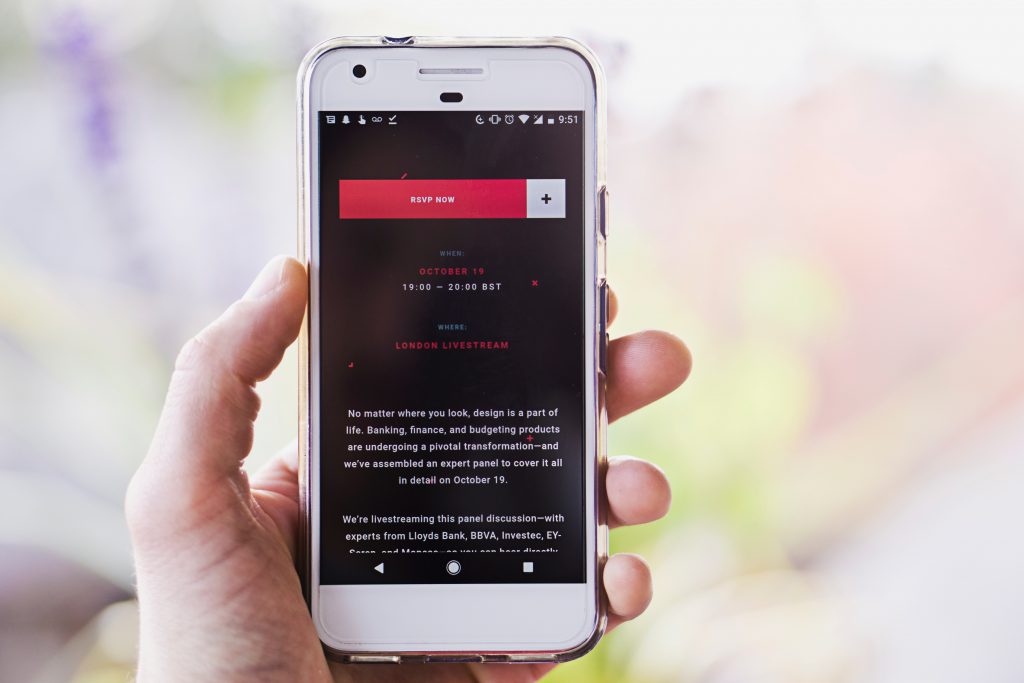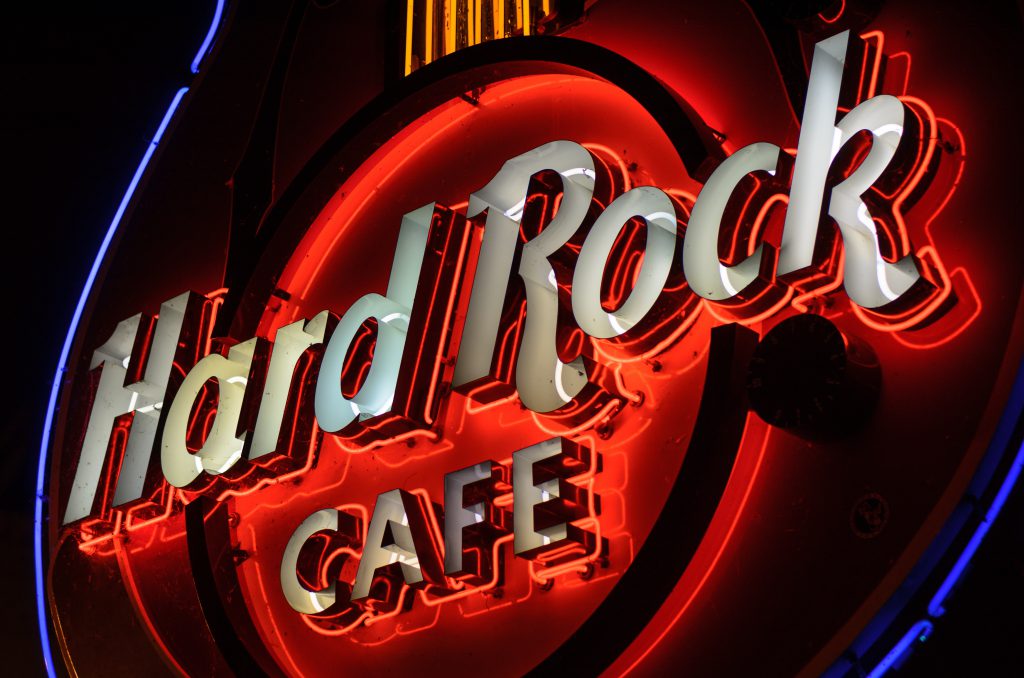You’ve heard it before: “Content is King”.
Maybe. Maybe not. For your guest, however, only one thing is king, queen, and the whole darn kingdom: their experience.
According to a study by Think with Google, consumer intent is far more important (and indicative of purchasing probability) than mere demographics.
In other words, it’s not who a person is. It’s all about what a person does and how that person behaves.
Why? Because customers make their buying decisions based on a series of interactions called “micro-moments”. These are seemingly small but incredibly significant details about the way a brand reaches out, interacts, educates, offers, and enhances the customer’s experience.
“Intent beats identity. Immediacy trumps loyalty. When someone has a want or need, they turn to their smartphone for help. When a need arises, people turn to search and YouTube to look for answers, discover new things, and make decisions…Understanding and…meeting [your customer’s] needs in the moment are the keys to winning more hearts, minds, and dollars.”
— Think with Google, “Why consumer intent is more powerful than demographics”
So What Do Guests Need?

Excellent question. Let’s take a look at guest/consumer behavior for the travel, hotel, and booking experience.
- Says TripAdvisor, 83% of travelers rely on ratings when choosing a hotel
- 68% of guests want to speed up the check-in process by using their smartphones
- While email’s open rates are down to 20%, text messaging read rates are 98% (aka, marketers haven’t over-saturated the use of text yet so the time is ripe to harness the power of text as a mode of communication)
- 80% of customers prefer to self-serve in order to get the information that they need (TechRadar, 2018)
- Since guests are already reliant on and wedded to their smartphones, hotels like the Hilton are now offering customers a chance to use their smartphones/mobile phones as a hotel room key (Financial Times)
- According to Google, one in three travelers across the world are using digital assistants already to research and book travel, searching for everything from flights to hotels, suggesting that mobile is the platform on which consumer behavior is occurring (Google/Phocuswright, 2017)
So…Why Text?
Text messaging — using text as a platform and method — is an innovative, low-cost way to do more than just communicate with a customer. Instead, hotel marketers can actually use the communication method to enhance the customer experience.
Why? Because customers are already asking for and relying on text. And text messaging has its own inherent strengths that make it a natural contender in the bid for your guest’s attention.
When you take a look at the behavior consumers/guests are already exhibiting, text messaging is a clear solution:
- Hotels that have adopted automated text messaging for guest communication strategies have seen a 25% increase in their guest engagement (ALICE).
- Texting offers immediate contact because smartphone users send and receive up to 5x more texts than phone calls.
- Text messaging automation offers template responses to “frequently asked questions”, except that the responses are much more instantaneous: Answers to questions like “What’s the WiFi password?” and “What time does breakfast start?” meet your guest at the point of their need, via an instant text.
- SMS or “mobile” marketing brings together three key elements — customer service, customer loyalty and mobile integration.
- Since texting is already a part of normal consumer behavior, the barriers to adoption are low (even when compared to an app, which is dependent on the consumer actually bothering to go and download the app).
How are Hotels Making Use of Text?
Creatively, in fact.
There are leaders in the space as well as independent hotels that are equally as innovative in their use of text messaging to enhance and win over the guest experience.
Marriott
To enhance the guest experience and reduce the amount of time guests were waiting (an annoyance that guests reported significantly reduced the enjoyment of their overall stay), Marriott implemented a text-based service to respond to customer requests. This included calls for room service and house-keeping.
Aloft
Knowing their consumer/guest demographic well, Aloft decided to “speak” in the language of their mostly-millennial guests.
That would be the language of the emoji. To introduce text messaging into their communication strategy, Aloft implement an offer call, “Text it, Get it” (or TiGi, for short), where guests can text a specific set of 6 emojis (which correspond to packages offered by the hotel) and receive that service.
Here, there’s a double novelty going on: Not only is Aloft using a popular, informal and instant method of communication, they’ve also done their due diligence in creatively “packaging” six distinct “services” that their ideal guest has asked for (often, presumably) before.
Cure for a hangover anyone? TiGi!

Holston House
Located in Nashville Tennessee, Holston House relies on text messaging to streamline their entire communication strategy, from start to finish.
Upon arrival, guests are welcomed via text and encouraged to check-in using a self-serve platform. During their stay, text allows a continuous flow of dialogue between the guest, their needs, and the hotel staff. At departure, Holston House uses text messaging automation to encourage feedback, send surveys, and resolve issues before the guest has left the premises.
MGM Mirage
With a generous budget, MGM Mirage uses SMS or mobile marketing, via text, to coach the customer’s future purchase, besides providing up-to-date customer service.
To bring together loyalty, customer service, and mobile behavior, MGM offers guests real-time promotions which are then texted to their guests’ phones. This might include discounts on entertainment events or information on the hotel’s own amenities that a guest would be wondering about.
They used insight garnered from their marketing platform to tailor messages to guests, based on purchasing and booking history. This drove up revenue and continued to evolve the tracking of what guests truly desired.
Hard Rock Hotel & Restaurant
The Hard Rock Hotel and Restaurant has always been ahead of the curve. They’ve started to use SMS or text messaging to promote events and products — but only to customers most poised to buy that particular product or service.
Right time, right place.
They also use “shortcodes” — such as texts with a prompt to message a particular code to a particular number — to promote their loyalty programs, a win-win for guests looking for exclusive offers, and the hotel, looking to build a solid guest list to market to in the future.
Here’s My Number…So Text Me Maybe
Both the big wigs and emerging hotspots are using text messaging automation and SMS marketing to bring together a customer’s loyalty, their intent or behavior on a mobile platform, and the integration of personalized marketing offers to make sure their current experience has been everything the guest had hoped for.
So how does a hotel benefit from all this?
24/7 Availability
While your front desk is sleeping, your guests might not be. Use text messaging to cut down on the number of employees required at the front desk or lessen the load/traffic on a busy front desk during the wee hours of the morning.
Text messaging allows guests to access the “point of contact” that a front desk represents, without the hotel actually having to serve and fulfill individual requests that may be “minor” but are no less time consuming and certainly contribute to a guest’s experience.
Earning better reviews
Text messaging can capture guests at the most pivotal moments — those “micro-moments” we were talking about — to translate their satisfaction into a better review.
See, it’s not only about capturing a review in a streamlined way (via a text survey) — it’s about actually using text messaging to capture guests right after a moment where you, the hotel, have managed to get their request done just right. Making use of this moment — and, indeed, gaining insight into when that moment occurred — is where SMS or mobile marketing comes into play.
Saving on time for both hotels and guests
Five front desk staff, a team of house-keeping staff, one booked-up weekend and 50 guests.
You do the math.
Text messaging as a method of communication can cut down on major time spent on routine, face-to-face interactions.
To make sure that all operations are running smoothly and respond to each guest’s expectation in a responsive, aligned and updated manner, hotels can use text messaging, not only as a means to ask and answer but also as a means to offer.
This saves immensely on time, not by “cutting down” or reducing human interaction, but, rather, using human interaction to where it is most needed.
Checking in, an action that can be automated, is not one of them. Bringing a guest their request, or responding to a booking snafu, however, is.

Engaging and nurturing customers who are on your list
Once a guest has booked with you or they’ve checked in, you’ve got their information — including email and phone number — to communicate with again.
Since we saw that email is not as effective as text for getting opened (hello, Gmail Spam Folder), the instant nature of texting allows guests to access the hotel’s amenities while the hotel can access a guest’s needs, tapping into their wants and delivering the products or services that respond to these.
But let’s think about the future: Once a guest has opted-in to a loyalty platform or your app’s newsletter, they are not just prospects but actual qualified leads simply waiting to find the right offer again.
It’s up to you to craft that offer, personalize it, and then deliver it at the right moment.
But before you can get there, it’ll take a series of interactions with your guests on your list to nurture that sale.
Increasing revenue
These series of interactions over text — from product and service offers, upsells, incentives, loyalty discounts, Q&A, guest requests, automated feedback and reviews, and information on amenities — all lead to one thing: Increased revenue.
If a guest has a positive experience, from the moment of their pre-arrival to the moment of their departure, not only are they more likely to refer other travelers and guests like them, they’re also more likely to return.
![]()
So, what’s really going on here? Why is text messaging so effective?
Well, there’s a caveat here. Text messaging is only effective when used as one part of a communication strategy. Certainly, the immediacy and ease of text messaging makes it a viable method for hotels and a delightful, simple experience for customers.
But there needs to be some intent and structure behind it. A simple, “Welcome to our hotel” is unlikely to be the weight that tips the revenue scales in your favor.
Instead, it’s the opportunity to personalize and use omnichannel marketing that makes text messaging as powerful and potent a tool as hotels can have today.
Think about it: If you get a text welcoming you, inviting you to check in and then, once you’re checked-in, offering you the exact product or service that would enhance your stay (such as an invitation to grab some Vitamin Water or a suggestion for a nearby restaurant or cafe), how much more likely are you to, firstly, capitalize on these suggestions and, secondly, perceive your stay in a more positive light?
It’s a question worth asking. And hotels will be answering via text.









